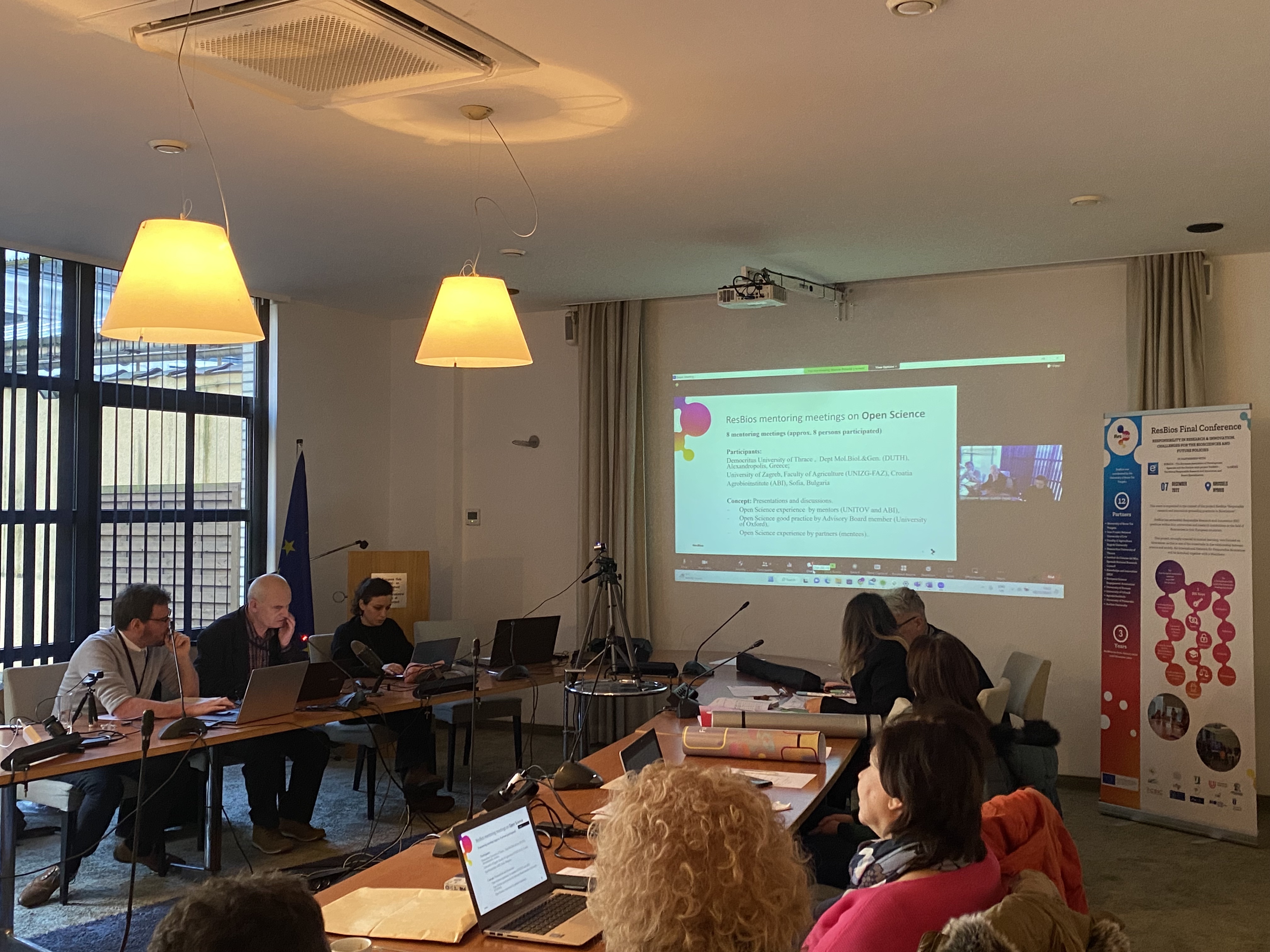On the 6 and 7 December, EURADA hosted and participated in a mutual learning workshop and the final conference of the ResBios project on the topic of ‘Responsibility in research & innovation: challenges for the biosciences and future policies’. The project aimed to further develop and embed practices of RRI in bioscience organisation, through implementing 15 grounding actions to achieve sustainable institutions chances in 4 research organisations in Croatia, Greece, Spain, and Ukraine.
These two final events of the project brought together the ResBios consortium, representatives of other projects and intiatives working on citizen engagement, responsibility, and Responsible Research and Innovation (RRI), experts in the field, and other participants to come together discuss, share experiences, best practices, and challenges about how future policies relating to RRI could look.
The mutual learning workshop was held on the 6 December and focused on how to ‘create and maintain spaces of ‘responsibility’ in research and innovation’ and how this connects science and society. During this workshop, several other projects shared their work on this topic, including the TetRRIS project, which EURADA is a partner of. Emad Yaghmaei from YAGHMA represented TetRRIS and shared the project’s approach to integrating RRI at the regional level as well as spoke to some of the common themes and challenges about implementing RRI expressed by the ResBios partners.
The final conference featured several insightful panel discussions and presentations on policies and the mainstreaming of ‘responsibility’ into research and innovation (R&I), the society contract between R&I and society, and on how science can develop a more balanced and responsible relationship with society.
Throughout these two days of presentations, discussions, and mutual learning, there were several points about the implementation of RRI that frequently emerged by different participants. The first being that RRI is a challenging concept to discuss. RRI is often already being integrated or is being discussed about being integrated to some aspect of work or policies, however this is often being done without actors realising that it is RRI being implemented.
Related to this is another common point that emerged, which is that there is the need to design processes that integrate RRI, including at the regional level. There is a lot of potential for transformation, if RRI is meaningfully implemented, which doesn’t necessitate the full understanding of RRI itself. What’s more important is to build the processes that have RRI integrated into them, so it can be understand and supported in principle, even if the concept of RRI isn’t directly understood.
As the ResBios project concludes at the end of December, this final conference also served as a launch for the legacy of the work done in the project to continue. During the final conference, the project launched the International Network for Responsible Biosciences as a network that will serve as a space for the work of how ‘responsibility’ can transform the relationship between science and society to continue.
Finally, the project published ‘Responsible Biosciences: A Manifesto for the Transformation of Science-Society Relations’.This manifesto offers some valuable contributions about the new social contract between science and society, and a new concept of responsibility, which many stakeholders outside of the biosciences field may find of interest.
